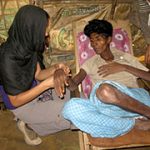PHR has joined 75 other organizations in expressing concern about the ongoing human rights violations and humanitarian crisis occurring in Burma. Their joint statement expresses deep concern for the Rohingya, a stateless minority that has long been persecuted and subjected to countless acts of violence, persecution, and discrimination. Other Muslims in the country have also suffered significant property destruction, segregation, arbitrary arrests, and deaths. In May 2013, PHR documented a massacre of Muslim children and adults in Meiktila, central Burma, during which government actors took no action to prevent or stop the violence and have been slow to investigate and arrest the perpetrators.
Civil society actors who have been closely monitoring the situation remain concerned about excessive violence and involvement of government officials and security forces in acts of violence, impunity for perpetrators, forced displacement, segregation, restrictions on freedom of movement, and crimes against humanity. One of the largest obstacles facing the Rohingya is their lack of government recognition as Burmese citizens. This exclusion denies them the basic rights, protections, and freedom other citizens are granted within the region.
The civil society organizations that signed the statement recommend that the government of Burma allow humanitarian aid workers to help refugees, administer a plan for reconciliation, and end restrictions on minority groups such as the Rohingya. These steps could be facilitated by establishing a fair judicial system, allowing the establishment of a country office of the UN Office of the High Commissioner for Human Rights, and reviewing the 1982 Citizenship Act, which bars Rohingya from citizenship.
In addition to collaborating with civil society organizations, PHR has conducted rigorous research and investigation into the human rights abuses occurring in Burma. In 2010, PHR documented the persecution and violent starvation of stateless Rohingya by Bangladeshi authorities.

